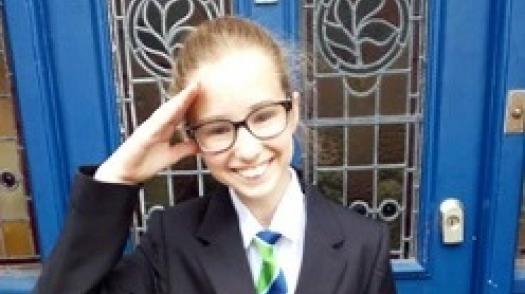
Lily’s experience: from primary to secondary school
Mum Amanda talks about her daughter’s experience of transitioning from Year 6 to Year 7 and shares her tips and how she got support.
In 2005, Saqlain sustained a brain injury in a car accident. Last year he was awarded his PhD in Cell Biology by Brunel University London. Saqlain shares his story and tips.
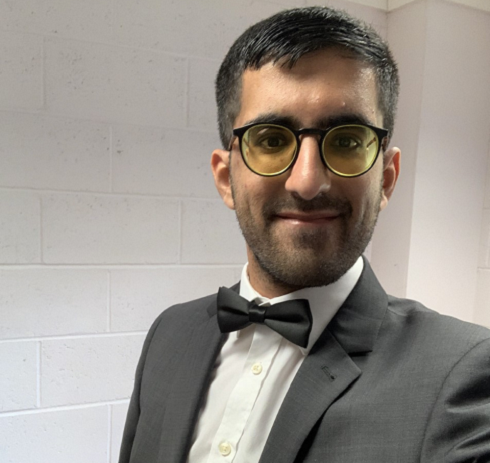
Published: February 2022. Date of brain injury: 2005 (aged 10 years old)
I was 10 years old when I arrived at The Children’s Trust, having been in a car accident. My younger brother, Maisum, and I were residents on Archie Norman house for six months, and we have very fond memories of our time in Tadworth.
When I arrived at The Children’s Trust, I felt quite nervous about being in a new place and what lay ahead. But all the staff were very welcoming and made me feel at ease very quickly.
The therapy sessions were such an important part of our recovery journey, and I can still see the impact of some of them today.
Physiotherapy enabled me to recover my physical strength and stamina, and I distinctly remember the therapists pushing me to achieve my goals, like maintaining my balance, which I know also helped develop my confidence.
Speech and Language therapy helped me articulate my thoughts more clearly and, using tools I first learnt at The Children’s Trust, has now helped me to teach students about complex scientific concepts in my university lectures.
The support they offer children with brain injuries is invaluable in helping them get to a place where they are able to cope for the future. The techniques they teach are really needed for the long term. By teaching families the same techniques, children have a strong support network which is vital to a good recovery.
I had a slow transition back into mainstream school, building up to being a full-time student again. When I left The Children’s Trust, I was in Year Six and that summer term I attended the school for half days in preparation.
This period of adjustment was incredibly helpful in building up my stamina to cope with the noise and activity of a large class.
The special educational needs (SEN) support provided by my middle and high schools in Harrow was amazing – helping me to further develop the skills to cope with increasingly difficult academic tasks.
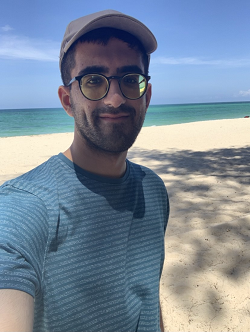
It was important for me to have a Statement of Special Educational Needs (now an EHCP) to outline the specific support I needed after leaving Tadworth.
The collaboration between The Children’s Trust and my local council allowed for this to happen and it made such a difference. It really helped throughout my time at school.
There were, and still are, challenges to studying due to my acquired brain injury (ABI).
In the short term, one notable example was dealing with social challenges. It was hard adjusting to certain social situations like group activities. However, using techniques I had learnt at different therapy sessions made it easier to cope with.
Long term, I would say that coping with my loss of memory was the most challenging. Even now, it is difficult for me to always remember facts and figures – or even instructions that I’ve been given.
While I know that this will never come back, there are tips I learnt at The Children’s Trust that I still use today. For example, keeping a notebook handy to write things down.
I took biology, history and philosophy & ethics for my A Levels – however, I knew my passion was science and it was biology that I wanted to study at university.
I studied biomedical science for my bachelor’s degree at Brunel University London. My A-Level biology teacher gave me some good advice, that it is better to start with a general degree so you can then decide what to specialise in. If you choose a very specific course, it can be harder to change this in the future if you change your interest.
I specialised in genetics, which had been my main interest while at school, but it was still useful to broaden my knowledge with other modules at university.
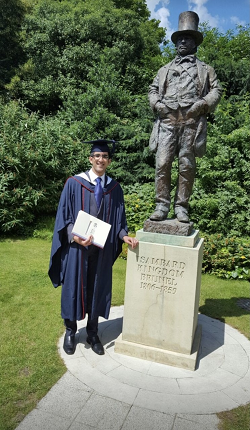
One thing that really supported my studies at this level was having a university support profile and funding from Disabled Students Allowance to ensure I had the right support in place, for example mentoring. This helped me cope with the pressures of university life.
Primarily, I wanted to continue my studies and complete a PhD because I discovered a real passion for my field, gene therapy, during my bachelor’s degree.
I also knew that I wanted to develop a career in research and was advised that the best way to achieve this was by getting a doctorate.
I was awarded my PhD in August 2021 and am currently working as a scientific researcher in the same field.
I think it is important to learn more about what you are interested in and give yourself the best chance for career opportunities post-university.
It is always valuable to get advice from people you trust about how to do this. I know I couldn’t have made it this far without the support of my family. Having a strong support network helped me to cope throughout my academic career.
Having a brain injury doesn’t mean you can’t get back into education. It may take a bit longer, and you may have to adapt to a slightly different learning style, but that’s ok.
Knowing what techniques work for you is really important, as well as guidance provided by organisations like The Children’s Trust, and can support you in whatever you choose to do.
My top three things to remember would be to;
1. Pursue what you’re interested in. Whatever you choose to study will help you in the future, but you need to be passionate about it too.
2. Keep at it! It may be hard, and a brain injury comes with its own individual challenges, but the more you persevere the more results you will see in the long term.
3. Talk to people in the know. Talk to teachers, therapists and support staff about how to cope with the changes in higher education. The style of learning is different and there are plenty of tools available to support you on that journey. Make sure you talk to trusted people to get that support in place.

Mum Amanda talks about her daughter’s experience of transitioning from Year 6 to Year 7 and shares her tips and how she got support.
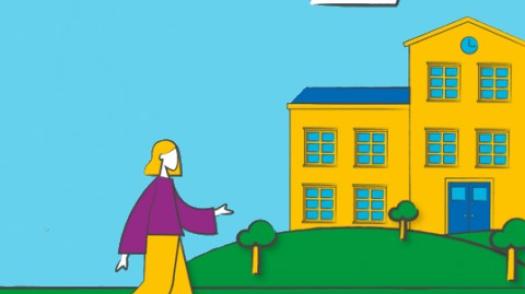
Free fast-track training session for primary school teachers
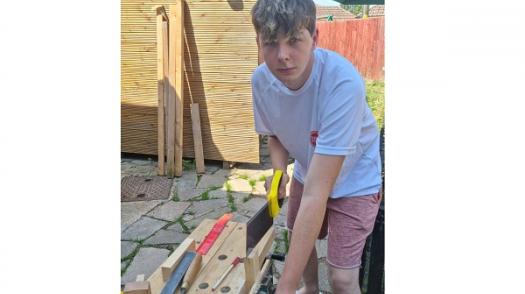
Three years after Haydn’s life-threatening accident, which resulted in a brain injury, Haydn has finished another year at college with great success.